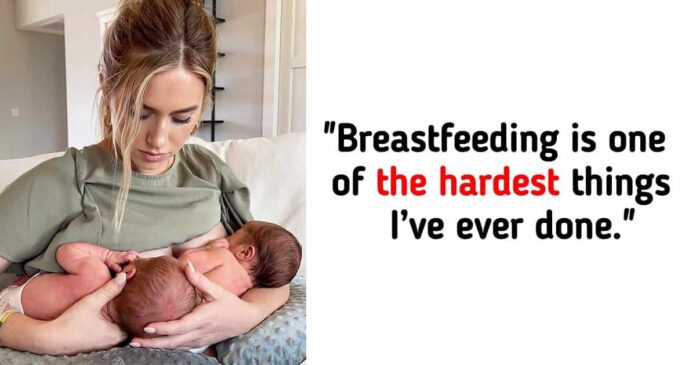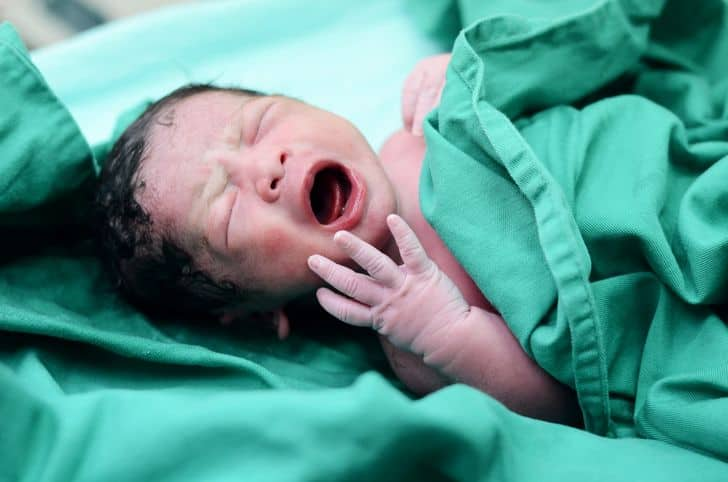
Your body is permanently altered by each pregnancy. And we’re not talking about scars or stretch marks. DNA has been altered forever. Any new mother will be able to give you a long list of the things that have changed for her. Like a forgetful mother’s brain, which science says strengthens the mother-child relationship.
All mothers are heroes in our eyes, and we salute them all. We discovered some mommy facts demonstrating the superiority of a mother’s love in order to celebrate all mothers. or the underlying science.
1. Motherhood changes you, and your DNA.

A chimaera is a mythical creature created from many animals. And because every child a mother bears leaves their DNA inside her, we are comparing moms to chimaeras. Fetal cells essentially enter a mother’s bloodstream and remain there permanently. According to researchers, these cells may have both good and detrimental effects on the mother. On the one hand, it helps hasten to heal, but on the other hand, it can raise the risk of developing cancer.
Therefore, when people say that becoming a mother changes you, they also mean fundamentally. That is exactly what Jennifer Garner’s gorgeous face conveys.
2. The baby can taste what its mother eats.

According to studies, the mother’s diet flavours the amniotic fluid. something that a newborn frequently gulps down. In essence, a kid may taste what her mother consumes while still inside the womb.
According to a study, babies whose moms consumed carrots while pregnant seemed to prefer porridge made with carrot juice over other types. Therefore, eat plenty of healthful, crisp vegetables while you are pregnant to help your baby’s palette develop.
3. Kissing babies is more “healing” than we think.

Any new mother will confirm that the desire to kiss a baby is strong. It is biological in origin and intrinsic. And according to scientists, when moms kiss their infants, it’s not simply out of love—also it’s therapeutic.
More magic occurs within a mother’s body as she samples the germs on the baby’s face. especially to her breastmilk, the infant’s primary source of nutrition and defence.
4. Pregnant women make enormous amounts of estrogen.

A woman’s body goes into overdrive while pregnant. After giving delivery, the uterus contracts back to its original size after expanding 500 times. The heart also slightly expands in response to the rising blood volume.
Not only that, but a woman produces more oestrogen during a single pregnancy than she would over the course of her whole life if she never became pregnant. There is a reason why pregnant women need to sleep and rest in order to have good delivery and recuperate.
5. A mother’s smile is nearly magical.

Mothers and their smiles or affections are almost magical. Although you need your mother at all ages, a helpless baby needs their mother the most.
According to studies, mothers’ heartbeats synchronise with their infants’ when they smile, coo, or otherwise demonstrate affection. As a result, it soothes a distressed baby. Because of this, mothers are most needed when babies are fussy and won’t quiet down on their own or with the help of other family members.
6. Carrying boys can make you more nauseous.

According to the nursery rhyme, little boys are made of “snips and snails and puppy dog tails” for a purpose. This is because, according to a study, mothers of boys are more likely to experience nausea in the first and second trimesters.
This is not to claim that all women who carry boys experience worse morning sickness or that women who are expecting girls cannot experience morning sickness. It’s only that the likelihood is higher that you will have more morning sickness or food intolerances if you are expecting a boy.
7. Babies name their mamas.

“Mom, mother,” “Mummy,” “Mamma,” “Ammi,” “Me,” “Emi,” and “Mimi.” Because the “em” sounds are frequently a baby’s initial vocalisations, there is a pattern in all of the names for mothers. Additionally, it’s the simplest sound a baby may babble. As a result, our children are the ones who refer to us as mommy.
8. The mommy brain fog is very real.

If you notice new mothers appearing lost, there is a scientific explanation. A woman’s brain is impacted by pregnancy and loses grey tissue. The results persist for about two years. According to science, this momentary perplexity also helps mothers become more attached to their children.
The grey matter does, however, regenerate, so any confusion or forgetting is temporary. A mother and her child have an unbreakable relationship.
9. A mother’s voice is as soothing as a hug.

A mother’s voice, even over the phone, has been proven in a study to be just as relaxing as a hug. After subjecting a group of girls to stress, researchers had 1/3 of them embrace their mothers, another 1/3 talk to their moms, and the remaining 1/3 watched an emotionally neutral movie. Like the girls who hugged, the girls who spoke to their mothers defused considerably more quickly.
This demonstrates that listening to your mother’s voice can release oxytocin into your system, relieving tension. We also believe that Jennifer Garner, who is photographed here with her mother, is aware of this.
10. Babies can cry in the womb.

The baby’s first cry does not occur after birth; instead, research has shown that babies can scream while still inside the womb. This may occur as early as week 28 of pregnancy.
Researchers could see that the infant opened their mouths and displayed crying-like behaviour when they played low-decibel noises on the mother’s tummy. It’s a silent cry, though. Researchers further stated that the mother need not be concerned about this in-vitro sobbing.
Lauren Burnham Luyendyk

“One of the most difficult things I’ve ever done was breastfeeding. I’m in awe of the women who make it seem so simple, and even if you don’t, you’re still superhuman.
Have you had any additional experiences as a parent or a child that demonstrate the fact that mothers are really superhumans? Tell us about your mothering experiences to promote happiness.
Rosie Huntington-Whiteley

“I did start to feel this new sense of life. And now my confidence is so much greater.”
Preview photo credit laurenluyendyk / Instagram



